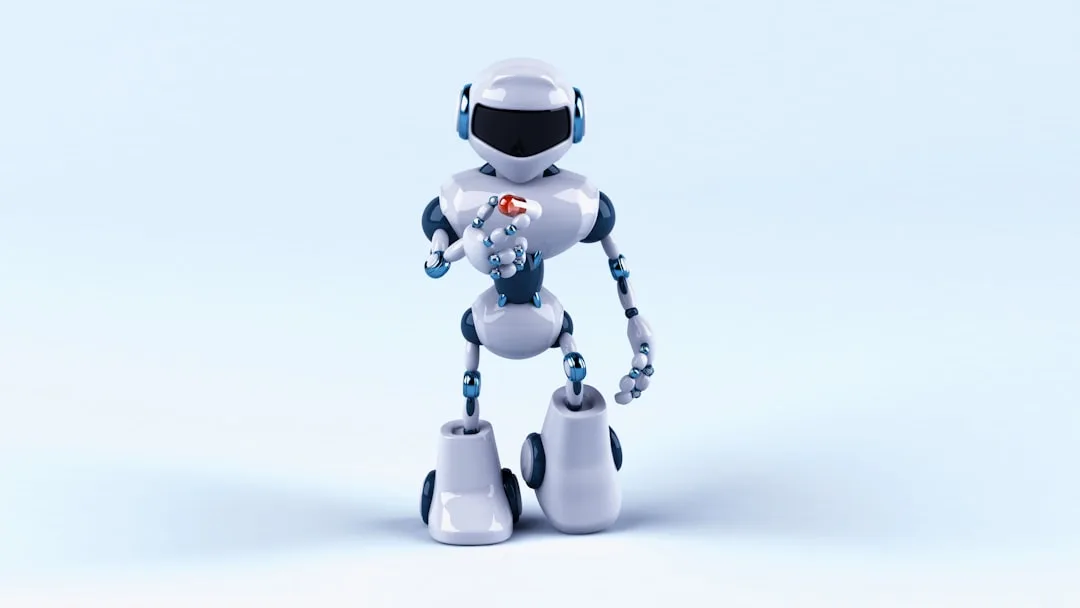
Newsletter Subscribe
Enter your email address below and subscribe to our newsletter

Enter your email address below and subscribe to our newsletter

In the ever-evolving world of artificial intelligence, several key players are driving groundbreaking innovations that promise to redefine the future of tech. Leading the charge are OpenAI, Google DeepMind, and IBM, among others, each introducing cutting-edge technologies that push the boundaries of what we perceive as possible. These companies are not working in silos; collaborations with academic institutions and startups are common, fostering an ecosystem ripe for innovation.
For instance, OpenAI’s advancements in language models, particularly with their GPT series, have made substantial impacts in natural language processing, enabling more human-like interactions between machines and users. Google DeepMind, known for its work in reinforcement learning, has developed AI that can solve complex problems, like AlphaFold, which predicts protein structures with remarkable accuracy. Meanwhile, IBM’s Watson continues to evolve, offering robust solutions in healthcare, finance, and customer service.
The implications of these AI breakthroughs span multiple industries, heralding a new era of possibilities. In healthcare, AI’s ability to analyze vast datasets quickly and accurately is paving the way for personalized medicine and early disease detection. For instance, Google’s DeepMind’s AlphaFold is revolutionizing drug discovery by predicting protein structures, which could shorten the development time for new treatments.
In finance, AI-driven algorithms are optimizing trading strategies and risk management, providing insights that were previously unimaginable. AI’s predictive capabilities improve fraud detection, saving companies millions of dollars annually.
The tech industry itself is experiencing a paradigm shift. AI is automating routine coding tasks, allowing developers to focus on more complex, creative challenges. This transformation is particularly significant for startups and freelancers who can leverage AI tools to compete with larger enterprises, leveling the playing field.
Moreover, AI’s integration into cloud services is enhancing scalability and efficiency. For instance, AWS and Microsoft Azure are providing AI-infused solutions that help businesses harness the power of data analytics, machine learning, and artificial intelligence to improve their operations.
The societal implications cannot be overlooked. As AI systems become more integrated into daily life, ethical considerations and debates around privacy, job displacement, and bias are intensifying. Policymakers and tech leaders must address these challenges to ensure that AI serves humanity positively.
For more on the intersection of AI and industry, check out our related post on “AI in Cloud Computing: Revolutionizing Scalability and Efficiency.”
As AI continues to advance at a rapid pace, its potential remains both exhilarating and daunting. The benefits are substantial, offering solutions to some of the world’s most pressing problems. However, with great power comes great responsibility. The tech community must prioritize ethical AI development to ensure that these technologies enhance human life without compromising fundamental rights and values.
In the coming years, we can expect AI to become even more embedded in the fabric of our daily lives. Innovations will likely continue to surprise us, blurring the lines between science fiction and reality. We predict that by 2030, AI will not only be a tool for efficiency but a cornerstone of creativity and collaboration across diverse fields.
The rapid advancements in AI technology are akin to the industrial revolution, fundamentally altering how we work, live, and interact with the world. The key difference is the speed and scale at which these changes are occurring. As developers and tech enthusiasts, we must embrace these innovations while advocating for transparency and ethical standards. Just as the internet transformed global connectivity, AI will redefine what is possible, pushing us to rethink our roles in an increasingly automated world.
As AI continues to revolutionize our world, the call to action is clear: engage, innovate, and advocate for a future where technology enhances human potential responsibly.